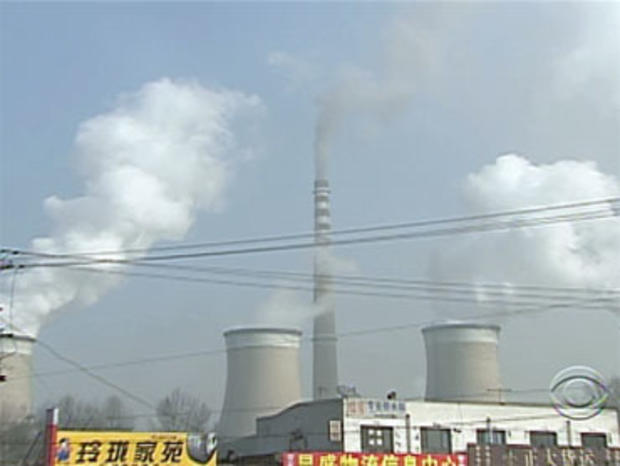White House: "Cap and Trade" is Out
At the same time the White House is opening up to offshore oil and natural gas drilling, the Obama administration is backing away from "cap and trade," a market-based plan to limit the nation's carbon output -- or at least that particular language used to describe the plan.
"I think the term 'cap and trade' is not in the lexicon anymore," Interior Secretary Ken Salazar said this morning on CNBC.
President Obama is advocating for the creation of a comprehensive energy plan, and the Senate is currently working on legislation that will address energy independence, create jobs and address pollution.
As a presidential candidate, Mr. Obama included as part of his platform a proposal to "implement an economy-wide cap-and-trade program to reduce greenhouse gas emissions 80 percent by 2050." A cap-and-trade system sets caps on the amount of pollutants a business or entity is allowed to emit into the environment, but it allows companies to buy and trade permits to pollute more. It is considered a market-based approach to reducing pollution.
The House of Representative passed a comprehensive climate change bill last year that included a cap-and-trade system.
Sens. John Kerry (D-Mass.), Joe Lieberman (I-Conn.), and Lindsey Graham (R-S.C.) are working on the Senate's version now, and it will likely include some caps on greenhouse gas emissions, incentives for alternative energy sources like nuclear power and wind and solar, incentives for oil and gas drilling, and small taxes on gas and other fuel. The bill is expected to be unveiled next month.
Both Graham and Kerry have disavowed cap and trade, or at least the term, the New York Times reports.
"I don't know what 'cap and trade' means," Kerry reportedly said last fall.
Meanwhile, the Times reports, opponents of the plan branded it "cap and tax," and Mr. Obama omitted it from his current budget, even though he included it in his first budget.
Backing away from cap and trade could anger environmentalists who want to see legislation that aggressively combats carbon pollution, particularly in the context of the administration's announcement today that it will reverse a ban on offshore drilling of oil and natural gas.
Today's announced was largely perceived as political.
"With one fell swoop, Obama deprives Republicans of the major talking point they'd use to object to more expansive government-based climate remediation and energy prospecting policy," writes CBS Chief Political Consultant, the Atlantic's Marc Ambinder.
Advocates of comprehensive climate change are already anxious, however, that the political move will prove fruitless. The House passed its climate change bill by only a 12-vote margin, and collecting votes in the Senate for a comprehensive bill will be even more challenging.
If cap and trade is to survive, it would likely, at the least, need a new name. One solution for the White House could be a piece of legislation from Democratic Sen. Maria Cantwell (Wash.) and Republican Sen. Susan Collins (Maine) called "cap and dividend," which would auction off pollution permits and return three-fourths of the revenue to citizens.
